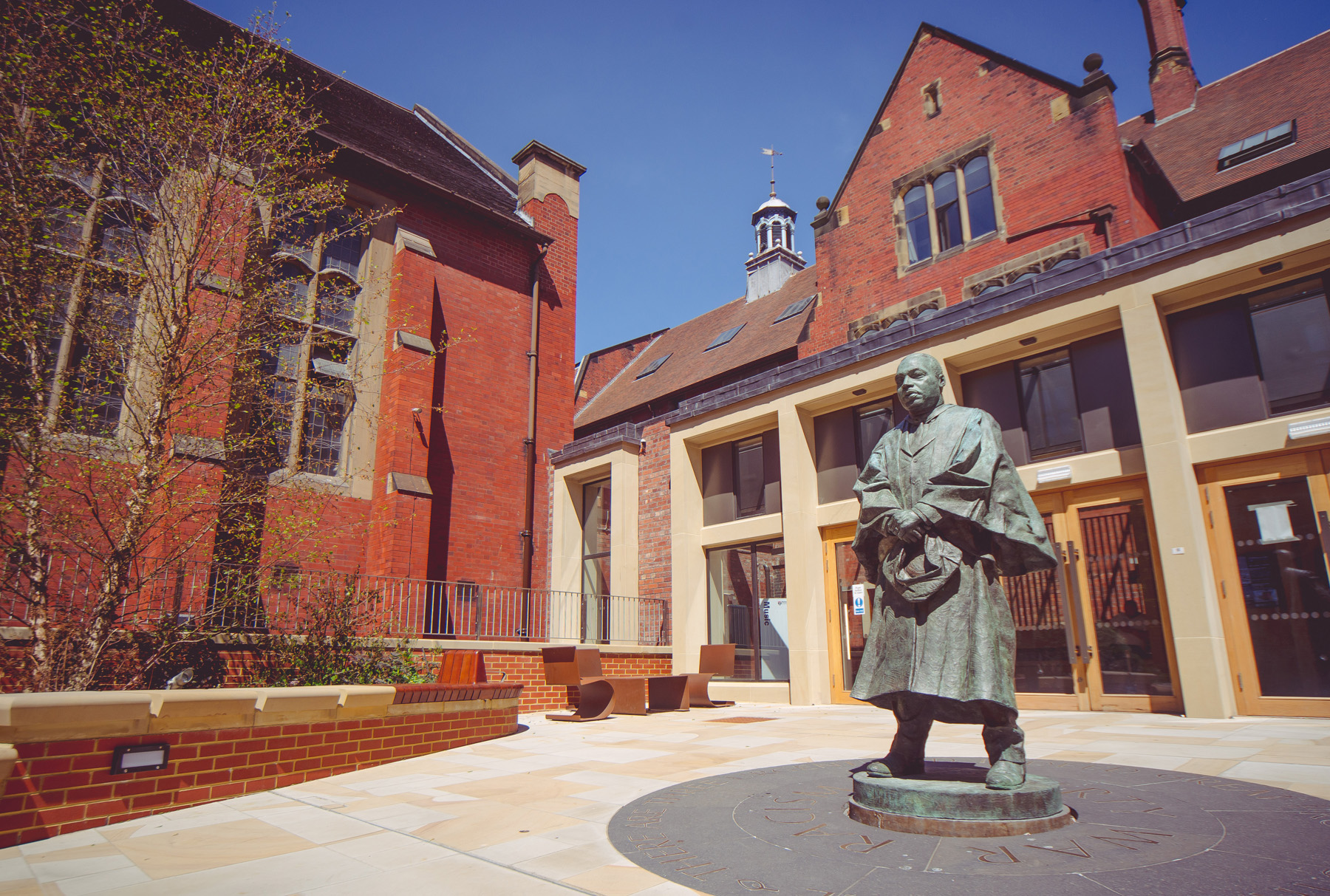Social Justice
At Newcastle, our aspiration is to contribute to social justice in everything that we do.
We are committed to working together with our external partners to achieve a fair
and just society.
Social Justice at Newcastle University
Social justice is one of Newcastle University’s core values. We are committed to working towards a fair society through our education, our research, and the way we run the University. We work with a large network of external organisations, reflecting our reputation as one of the UK’s first and leading civic Universities.
The North East of England has a long history of social justice campaigning and the University has been part of this tradition, including:
- awarding an honorary degree to Dr Martin Luther King Jr in 1967
- our work to promote social mobility amongst young people
- involvement in broad-based community organising as a Tyne and Wear Citizens founder organisation and strategic partner
- becoming a Real Living Wage employer in 2019
- many other projects and initiatives that contribute to progressive societal change worldwide
Our commitment to social justice makes us stand out in the higher education sector. Our Dean of Social Justice, Professor Rachel Pain, leads on this work with support from our Engagement team.
Newcastle University exists to benefit society through our education, our research and the way we run the University. Our ambition is to work with external partners so that social justice runs through everything we do.
What is social justice?
Newcastle’s social justice work is directed by our Social Justice Advisory Group (SJAG). The group includes representatives from the Voluntary, Community and Social Enterprise (VCSE) sector. It is chaired by Rachel Pain (University Dean of Social Justice).
In the words of David Smith, social justice is “who gets what, where, when and how?” It centres on the distribution of society’s benefits and burdens, and the ways social processes can produce fairer outcomes. Social inequalities are harmful and this underpins our understanding and practice of social justice.
Our focus includes research, education, and the way we run our organisations. We are action-oriented, aiming to:
- tackle injustice
- work towards fairer societies and a fairer university
- have positive impacts on people’s lives
Our communities and place give purpose and shape to our social and environmental justice work, and vice versa. This work goes beyond our immediate region, including local and international initiatives.
We draw on the knowledge and expertise that exists outside and inside Universities. We're committed to working in partnership for more democratic, fair and effective outcomes. Together, we seek to maximise our collective voice and leverage power. By engaging with partners and stakeholders and by producing knowledge and action, we can have a greater impact on the urgent social and environmental problems facing the planet.
Achieving social justice remains a work in progress. We're committed to dialogue, honesty, and willingness to identify when we go wrong and how we can do better.
